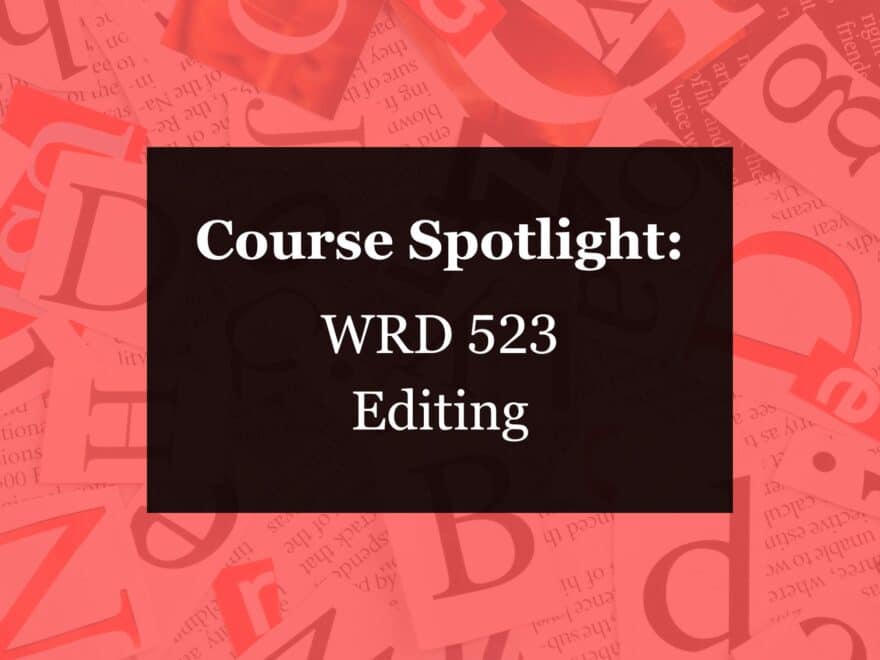As course registration is soon to open for Spring Quarter 2024, learn more about WRD 523 Editing taught by Dr. Tim Elliott. Here, Dr. Elliott reflects on WRD 523 and what it offers to students who enroll.
Course Goals and Learning Outcomes
WRD 523 is a class that opens doors. Students will learn how to edit all different kinds of writing, from resumes and cover letters to documentation from a local partner organization. In class we’ll learn an array of concepts and strategies, like rhetorical grammar, technical writing principles, style guides, and more. But the lessons students will learn in the course extend beyond a closed relationship between the editor and the piece of writing. Dr. Elliott emphasizes that you don’t just edit in a void, you edit for specific people. Students will learn to build rapport with the people they’re editing for, increasing connection and striking a balance between feedback and not overshadowing the writer.
Dr. Elliott’s Inspiration for Teaching this Course
When he was a student, Dr. Elliott took a graduate-level editing course. He saw it as a practical course because he could put it on his resume as a strong and marketable skill. It also opened doors for him, as he left the course with the confidence to finally say he is a communications person—people can come to him with their work and he can help them. “It empowered me,” Dr. Elliott noted, by making him more secure in his writing identity.
Course Structure
The course starts with learning to edit academic writing because that’s what students are most familiar with. Then, students move on to editing resumes and cover letters for someone in their life. Around week 4, students learn the Chicago Manual Style Guide as it’s the style used most often in professional editing. As the quarter progresses, students will partner with a local organization and learn to build rapport with a professional client as they manage document editing.
Major Projects and Assignments
- Class Facilitation: Students will be responsible for a short class facilitation for one class, creating a handout to summarize the readings and leading an in-class activity.
- Copyediting Test: Many professional writing positions require a copyediting test as a prerequisite to hiring. Students will complete their own in-class copyediting test as an exercise in editing hard skills like grammar and content.
- Client-Based Edits: The class will divide up materials from the local partner organization to do their own set of edits and feedback.
- Final Presentation: At the end of the course, students will meet to the present on the edits they made for the client
Who Should Take This Class and Why
Students who are interested in professional or workplace writing should take this course. It has the potential to help you aid the organizations you’re part of (or will become part of) by making you a stronger and more attentive editor and writer. This class can also help you in any sort of editorial career as it touches on many kinds of editing. Moreover, editing is a marketable skill on resumes or to build your freelance opportunities. Finally, for students with Writing Center experience, it’s the next step towards building your capacity to give professional feedback.
Final Thoughts…
As Dr. Elliott prepares for his third time teaching this course, he has a bit of final parting advice: “The best thing you can gain from a graduate level class is a story to tell what you learned. This class is an approachable way to dive a little deeper. It’s not just grammar memorization, it’s fun!”
Be sure to look out for WRD 523 Editing as you enroll in courses this spring!
